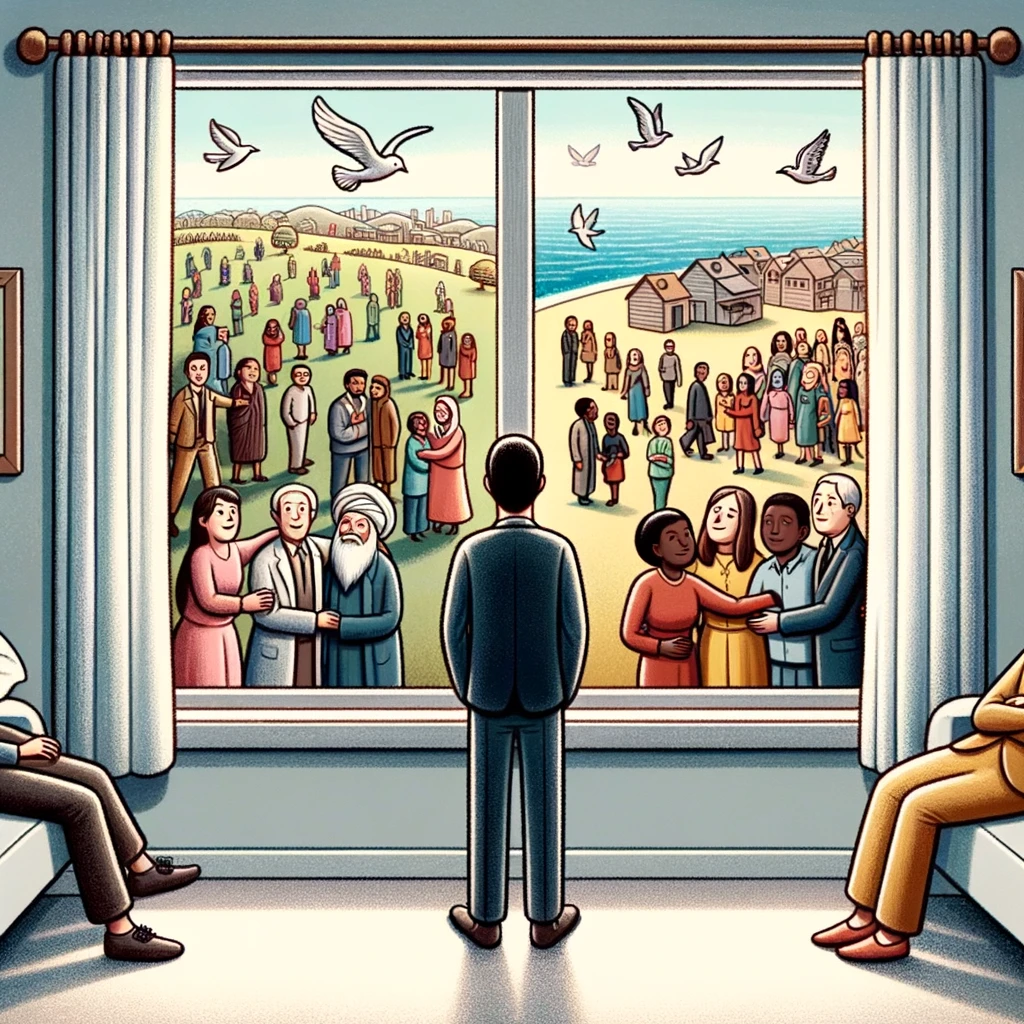At some point in our lives, many of us have felt disillusioned with the world. Maybe it’s a series of personal setbacks, or perhaps it’s the constant barrage of disheartening news. For some, these feelings deepen, leading to a general disdain or distrust of humanity—a mindset known as misanthropy. If you find yourself in this category and want to stop being a Misanthropist, this guide is for you.
1. Understanding the Root of Your Feelings
To move forward, one must first look back. Delve into the heart of your misanthropy. Ask yourself:
- Is it a result of personal trauma? Unresolved traumas can skew our perspectives.
- Are you influenced by external factors? Constant exposure to negative information can amplify distrust.
2. Limit Exposure to Negativity
In this digital age, we’re often inundated with distressing news. While staying informed is essential:
- Choose quality over quantity: Opt for news sources that provide a balanced view.
- Take digital detoxes: Periodically disconnect to reconnect with yourself.
3. Seek Therapy or Counseling
Sometimes, the weight is too much to bear alone. Professional guidance can offer:
- New coping strategies: Learn tools to navigate your feelings.
- Unbiased perspectives: Therapists can provide insights you might not have considered.
4. Cultivate Positive Relationships
Surrounding yourself with understanding and compassionate individuals can work wonders. They can:
- Offer support: When you’re down, they can lift you up.
- Provide alternate viewpoints: Different perspectives can challenge and reshape your views.
5. Engage in Activities that Restore Faith in Humanity
There’s a world full of kindness out there, waiting to be seen:
- Volunteer: Witnessing selflessness firsthand can change perceptions.
- Join community groups: Being part of constructive projects can reignite your trust in people.
6. Practice Mindfulness and Meditation
These practices anchor you to the present and help in:
- Reducing overthinking: Quieting the mind can reduce negative rumination.
- Increasing self-awareness: Recognize and address your feelings as they arise.
7. Remember, It’s Okay to Seek Help
Shedding misanthropic views doesn’t mean you’re giving in. It means you’re brave enough to seek change. Whether it’s through friends, family, or professionals, reaching out is a sign of strength.
In wrapping up, moving away from a misanthropic mindset isn’t an overnight task. It’s a journey. But with commitment, support, and understanding, it’s a journey that can lead to a more optimistic and fulfilling life.
Things a Misanthropist Must Stop Doing Right Away
Misanthropy, often leads to a spiral of negativity, making it difficult for the misanthropist and those around them. If you believe you might be leaning towards misanthropic tendencies, or if you’re just curious about the mindset, it’s essential to recognize some patterns of behavior and thought that can be detrimental. Here’s a look at some things a misanthropist should consider letting go of for a healthier perspective on life.
1. Sweeping Generalizations: All too often, a misanthropist might think, “People are just selfish.” Such broad statements, while they might hold some truth, don’t account for the nuances of human behavior. Every person is unique. It’s essential to remember that one or two negative experiences shouldn’t define our perspective of humanity as a whole.
2. Avoiding Social Interactions: While it’s okay to be introverted or to prefer alone time, completely shutting oneself from the world can be isolating. By avoiding interactions, a misanthropist might miss out on potential positive experiences or connections that could change their viewpoint.
3. Ruminating on the Past: Dwelling on past wrongs or betrayals can foster negative feelings. Letting go, while difficult, is often the first step towards healing and developing a more balanced view of others.
4. Not Giving Second Chances: Yes, trust once broken is hard to rebuild. But sometimes, people change, situations change, and granting a second chance can pave the way for improved relationships and understanding.
5. Focusing Solely on Negative News: In our hyper-connected age, it’s easy to become overwhelmed by the endless cycle of negative news. However, there are countless acts of kindness, generosity, and love happening every day. Look for those stories too.
6. Being Overly Critical: It’s easy to spot flaws in others, especially if you’re inclined to. But perpetually being on the lookout for mistakes or shortcomings in people can drain you. Remember, nobody’s perfect – not even you.
7. Ignoring Personal Growth: It’s crucial to introspect and understand why one might feel a certain way about humanity. Seeking therapy or counseling can offer insights and coping mechanisms to overcome deeply ingrained misanthropic views.
8. Not Seeking Balance: Like everything in life, balance is key. It’s okay to be cautious or wary, but it’s also essential to remain open to the possibility of goodness in others.
9. Shunning All Forms of Connectivity: In today’s digital age, the term ‘connectivity’ isn’t limited to face-to-face interactions. Even online platforms can offer solace, understanding, and community. Shutting oneself off from all these platforms might lead to feelings of loneliness.
10. Not Recognizing the Self-Fulfilling Prophecy: Believing that all people are untrustworthy or malevolent can lead to behaviors that push people away, which in turn reinforces the misanthropist’s beliefs. It’s a vicious cycle.
While it’s natural for everyone to feel disillusioned with humanity now and then, lingering in these feelings isn’t healthy. If you identify with the misanthropist label, or even if you’re just having a rough day, consider the pointers above. Our perspective on life, after all, is often a choice – and everyone, even a misanthropist, has the power to change theirs.
If this article was helpful for you, please do share with others.




